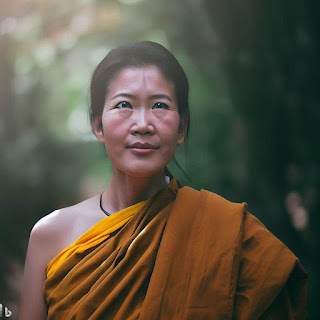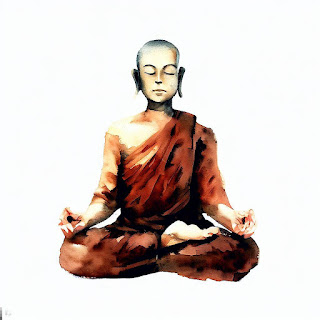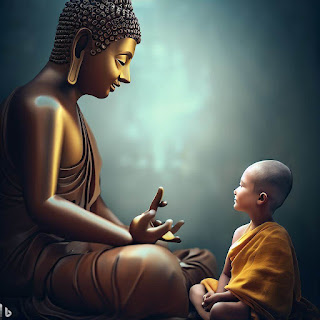After the Buddha's stepmother, Queen Mahapajapati Gotami, lost her position due to the Queen's death, she became the chief queen and looked after the newborn Prince Siddhattha while her own son, Nanda, was taken care of by a wet-nurse.
When the Buddha came back to Kapilavatthu after attaining enlightenment, Mahapajapati Gotami requested him to permit women to join the Buddhist Order as bhikkhunis. However, initially, the Buddha declined her request.
 |
| Mahaprajapati Gautami |
After King Suddhodana passed away, Mahapajapati Gotami, along with five hundred women, traveled on foot to Vesali to meet the Buddha. They had shaved their heads and wore robes, and Mahapajapati made the request again. This time, the Buddha agreed but set eight special conditions (garudhammas) for Mahapajapati to follow.
Mahapajapati accepted the conditions and became the first bhikkhuni, and other women were admitted to the Order afterward.
However, some bhikkhunis later doubted Mahapajapati's status because she didn't have a preceptor. They stopped participating in certain ceremonies with her and raised the issue with the Buddha.
The Buddha responded by saying that he himself had given the eight garudhammas to Mahapajapati and that she had practiced them faithfully. He declared that he was her preceptor, and it was wrong to doubt the status of an arahat like her.









